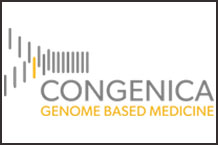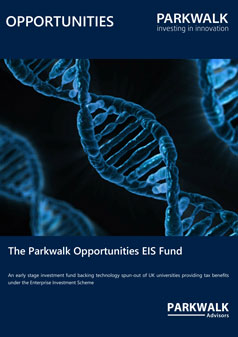Dear ,
Congenica’s technology is based on ground breaking research from the Deciphering Developmental Disorders (DDD) Study. This study collected genetic data from over 13,600 children (plus another 19,400 mothers and fathers) at 24 UK NHS labs and has so far been able to identify 30 genes that were not previously known to be associated with developmental disorders. Results were published in Lancet and Nature in 2015, but the data will continue to be analysed for additional novel discoveries until 2021.
The company was spun out in 2014 and has the benefit of the DDD experience with regard to not only the genomic and medical insights, but also to the issues involving processing large amounts of such data, as well as to the issues of confidentiality and security surrounding the use of individuals’ genomic data. Congenica continues to gather anonymised patient data from various sources, including Genomics England and NHS hospital labs, which will enable the company’s software platform to become ever more powerful at diagnosing genetic disease.
The Market Opportunity
There is a very significant potential benefit to the human population for all people to have their genome sequenced and for the genetic data obtained to be analysed. This could lead to
• improved diagnosis and personalised choice of treatment for current conditions
• the development of improved treatments in the future
• improved predictive abilities, for example in the case of prenatal screening.
The approach will deliver cost savings to the healthcare system by reducing incorrect diagnoses and non-optimised treatment, as well as health benefits to the individual patients through the correct treatment being delivered more quickly. It will also help healthcare R&D to be more productive by enabling genetics to drive the drug development process.
Congenica’s initial model is selling software licenses to hospitals and pharmaceutical companies for their own use in analysing genomic data. It will also consider a “sample-to-report” model, whereby the company processes the data and issues a clinical report on the patient back to the customer. In the longer term the company will have a very valuable database of genomic information to monetise.
The company estimates a total serviceable market of 11.5m tests a year for rare genetic diseases. In the medium term Congenica believes next generation prenatal testing will be a major opportunity for it to take a leading position in a market estimated to be $2bn by 2020 (Transparency Market Research 2014).
The Technology
Congenica’s product, Sapienta, can ingest any type of genomic data, describe the associated phenotype, identify and annotate genetic variants and mutations, and facilitate clinical interpretation of the results in a secure manner.
The product will eventually be classified as a medical device product and is currently being produced under ISO 13485 (Medical Device) guidelines. It will soon receive a CE Mark in Europe. The route to regulatory approval in the US has yet to be determined, but the FDA has issued an initial guidance document that Congenica will easily be able to comply with. The company received ISO 27001 (Information Security) accreditation in 2015.
The initial technology platform is licensed from the Sanger Institute and Congenica has unique know-how in its software and data processing capabilities. Congenica has agreements with Genomics England and with the NHS regarding the data and the use of its software, as well as with UCB Pharma.
The Team
Dr Tom Weaver, Chief Executive Officer, has a proven track record of creating value in highly successful start-up companies, applying genome-based technologies and contract services for fundamental research, clinical, and drug discovery purposes. He has also led large infrastructure programs in genomics and animal model genetics, serving as a Director at the Medical Research Council (Oxford). He trained at the University of Cambridge and MRC Lab for Molecular Biology (Cambridge), and the University of Wisconsin Medical School.
Dr Andrew Richards, Chairman, is an entrepreneur specialising in healthcare and life sciences. He is currently Chairman of Ixico plc, Abcodia Ltd, Novacta Ltd and Cambridge Temperature Concepts Ltd. He was a founder of Chiroscience and an Executive Director through to the sale of Celltech in 1999. He is a director of Cancer Research Technologies and Babraham Bioscience Technologies, a member of CRUK and a Trustee of the British Science Association.
Laura Taylor, CFO, is a chartered accountant (Deloitte, 2002) with 15 years’ experience working in strong-growing listed SMEs. Immediately prior to joining Congenica in 2015, she spent 4 years as Group Financial Controller at Abcam plc, followed by 2 years as Head of Investor Relations. Laura holds a first-class honours degree in Human Cybernetics.
Dr Nick Lench, COO was previously Director of the NE Thames Regional Genetics Service at Great Ormond Street Hospital for Children, with responsibility for the strategic and operational management of a genetics service that provides DNA diagnostic testing to a population of approximately 4.5M people. Nick is an honorary Reader at the UCL Institute of Child Health, and has over 25 years of research experience in human molecular genetics.
Professor Richard Durbin, Informatics Director and Founder, is a Group Leader of the Human Genetics Programme at the Wellcome Trust Sanger Institute, a Fellow of the Royal Society, and a Member of EMBO. A pioneer in the industry, he has developed sequence data analysis tools that are now standards in the field. His current research focuses on human genetic variation by large scale genome-wide re-sequencing.
Dr Matt Hurles, Scientific Director and Founder, is Senior Group Leader at the Wellcome Trust Sanger Institute and a leader in the Deciphering Developmental Disorders, 1000 Genomes and UK10K projects. He has pioneered the analysis of whole exomes in clinically relevant disorders that previously failed diagnostic methods, and has led an initiative to characterise structural variation in the human genome, and integrate this knowledge into disease and population genetic studies.
Professor Philip Beales, Medical Director, Phil is a consultant physician and Professor of Medical and Molecular Genetics at the UCL Institute of Child Health, an NIHR Senior Investigator, an Honorary Consultant in Clinical Genetics at Great Ormond Street Hospital and the lead on Personalised Medicine for UCL. He is an internationally recognized expert in the genetics and pathogenesis of ciliopathies and pioneering use of next generation sequencing in mapping disease genes in this area
The Investment Case
There is a very significant potential market for Congenica’s technology and it has a head start on the competition with its experience. The initial focus commercially is in rare diseases in children, with prenatal screening a likely second market. Congenica has signed up pharmaceutical company UCB for a project in rare diseases, has signed up two distributors, in China and the EU, and has its first customer in the US, the NY Genome Centre CLIA lab.
Congenica is well positioned to provide key analytical components in the drive towards personalised, genomics based medicine. The world leading efforts in genomics by the NHS and Genomics England provide a supportive backdrop for their future success.


